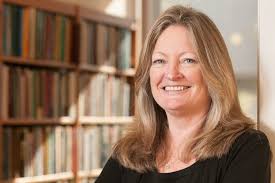


Starling, an applied behavioral sciences technology company in the “regtech” space, has announced the appointment of Karen S. Cook to its advisory board.
Professor Cook is the Ray Lyman Wilbur Professor of Sociology and Vice Provost for Faculty Development and Diversity at Stanford University, where she directs the Institute for Research in the Social Sciences. A trustee of the Russell Sage Foundation, professor Cook has a long-standing interest in trust in social relations and networks.
“We’re truly thrilled to have Karen with us,” said Starling founder and CEO Stephen Scott. “Karen is among the foremost scholars who have researched the role of trust dynamics in shaping organizational and institutional outcomes. As we work to provide customers with data-driven tools that help them to assess corporate culture and to mitigate behavior-related risks, her uniquely well-informed perspective is of enormous value to us.”
“I am very impressed with the work that Starling is doing,” said Professor Cook. “As organizations move away from hierarchical forms of authority to more ‘horizontal’ and networked ways of managing their business, trust becomes even more central to their success. Teams function far better when those involved are trustworthy and can be counted on. Organizations and institutions must increasingly rely on the trust of their clients or customers in order to fulfill their functions in society, and that is rarely seen when trust is lacking internally. Starling offers critical insights into these processes.”
About Professor Karen S. Cook
Professor Cook is the Ray Lyman Wilbur Professor of Sociology and Vice Provost for Faculty Development and Diversity at Stanford University, where she directs the Institute for Research in the Social Sciences. Professor Cook has a long-standing interest in social exchange, social networks, social justice and trust in social relations. She has edited a number of books in the Russell Sage Foundation Trust Series including Trust in Society (2001), Trust and Distrust in Organizations: Emerging Perspectives (with R. Kramer, 2004), eTrust: Forming Relations in the Online World (with C. Snijders, V. Buskens, and Coye Cheshire, 2009), and Whom Can Your Trust? (with M. Levi and R. Hardin, 2009). She is co-author of Cooperation without Trust? (with R. Hardin and M. Levi, 2005). In 1996, Professor Cook was elected to the American Academy of Arts and Sciences and, in 2007, to the National Academy of Sciences. In 2004 she received the ASA Social Psychology Section Cooley Mead Award for Career Contributions to Social Psychology.